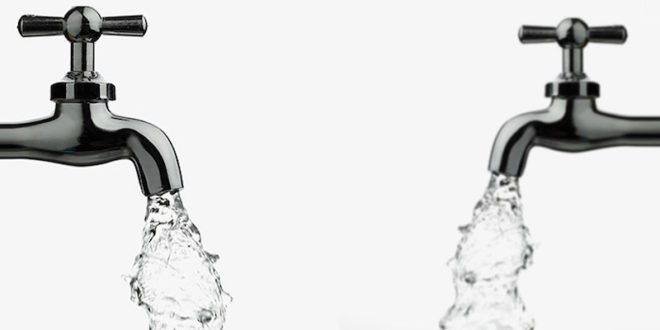Safety and purity of public water supply is an ongoing debate in most of the households in Toronto. When some drink and use tap water for cooking with confidence, others consider it as a no-no. To clarify the subject and answer public concerns and questions Be Healthy addressed to the source, Lou Di Gironimo, General Manager of Toronto Water.
What is the public water system? How the tap water is made drinkable? What is the process?
The City of Toronto’s four water treatment plants has highly effective water treatment and quality assurance processes in place. The treatment processes are based on a multiple barriers concept whereby coagulation, filtration, and chlorine disinfection perform complementary roles in physically removing and inactivating disease-causing organisms, which might be present. These processes are monitored to confirm process effectiveness. Back-up systems are in place to ensure that processes continue when equipment malfunctions.
Is the tap water safe to drink?
Yes, Toronto’s tap water is safe to drink and goes through rigorous testing to ensure it meets the stringent standards of Toronto Public Health, the Province of Ontario and the Government of Canada. Canadians have one of the largest freshwater supplies in the world and here in Toronto, we’re especially fortunate to live on the shores of the Great Lakes. When you turn on your tap for a glass of cold, clean water to drink, be assured that you can do so with complete confidence. Not only is Toronto tap water safe to drink, but it is also extremely economical. The cost to fill an average water bottle with Toronto tap water is less than 0.2 cents.
Where can I find water-testing results for me to help me to decide if the tap water is safe my family to drink?
Toronto Water publishes a variety of reports, plans, and publications for regulatory and reporting purposes that are available for the public to see online.
How often is the tap water checked? If there is a problem with the tap water, how would I know?
The City tests samples every four to six hours to confirm the absence of bacteria. Our goal is to always meet or exceed the very stringent Ministry of the Environment’s Ontario Drinking Water Standards. Standards for drinking water quality are set and legally enforced by the Ontario Drinking Water Standards. The regulation, which focuses on treatment and testing, mandates public access to information and notification of adverse results. If there were a problem with the drinking water that made it unsafe, the public would be notified.
Occasionally the tap water smell (odor?) is more noticeable. Is it a sign of an issue?
Occasionally during the summer months, the presence of naturally-occurring algae and higher water temperatures in Lake Ontario can cause a noticeable taste and odor. Testing at quality control laboratories has confirmed that the quality of the water continues to be excellent during these occurrences. Toronto Water is looking at ways to reduce or eliminate the taste and odor episodes in the future.
What chemicals (chlorine, ammonia, aluminum, lead, fluoride), minerals or microbiological contaminants (viruses, bacteria) are still present in the tap water? What are the potential health hazards?
Chemicals are used in the water treatment process. However, Toronto Water uses the lowest amount of chemicals necessary to treat the water effectively. Two chemicals, which cause people concern, are chlorine and aluminum. Here is information about the use of these chemicals in our water treatment process. Chlorine is used to inactivate bacteria, algae, and viruses present in the water. Before the water is pumped to your home, sulfur dioxide is added to reduce the level of chlorine to 0.9 milligrams per liter. Aluminum sulfate (alum) has an essential function in the water treatment process. It helps remove harmful micro-organisms and particles by making them clump together into larger particles so they can be filtered out of the water supply. Although most of the aluminum is removed during the treatment process, a small amount remains in the water.
Fluoride is added to Toronto’s drinking water. The current target level of fluoride in Toronto drinking water is 0.6 parts per million – a level which is less than the naturally occurring fluoride levels from a number of European and North American water sources, including parts of Ontario.
Fluoride levels in Toronto’s drinking water are regulated in Ontario under the Safe Drinking Water Act administered by the Ministry of the Environment.
Is it recommended to additionally filter or purify the tap water (e.g. by using Brita carbon filters)? Is it recommended to boil the tap water? If yes, why?
No. It is not necessary or recommended to additionally filter or purify tap water. Toronto Water is safe to drink and has already been treated and tested. The City of Toronto takes great pride in ensuring that residents have access to clean, safe and affordable drinking water wherever they may go. If residents don’t like the chlorine taste in tap water for example, they can fill up a jug of tap water and place it in the refrigerator for 24 hours and the chlorine will naturally dissipate.
For more information go to http://www1.toronto.ca/wps
 Be Healthy magazine Health-related monthly magazine
Be Healthy magazine Health-related monthly magazine
